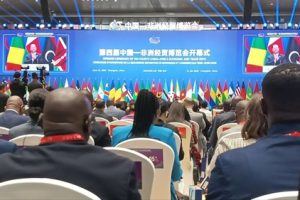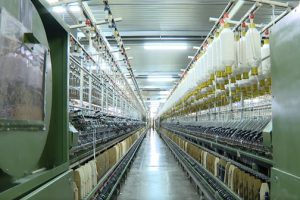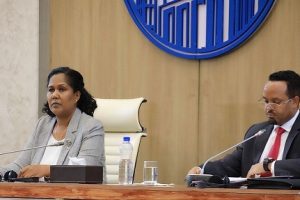United Nations members are scheduled to vote on June 17 for new non-permanent members of the Security Council in a race that could test future relations of Kenya and Djibouti.
The vote will be conducted virtually although it will still be a secret ballot, due to measures meant to contain spread of coronavirus.
Kenya, Djibouti, India, Mexico, Canada, Ireland and Norway have all fronted their candidature, but the actual race is between Kenya and Djibouti, two African countries bidding to replace South Africa on the UN’s most powerful organ.
Traditionally, each region of the world is allocated seats to the Council, but the voting is a formality as the regions often agree on a candidate.
For Kenya and Djibouti, the voting will be the climax of a bare knuckle campaigns that has forced African countries to take sides and at the African Union Summit last February, Kenya complained of Djibouti’s “dishonourable’’ campaign.
Diplomatic overtures as well as an attempt for mediation by then AU chairperson Abdel Fattah al-Sissi seemed to have failed to have one drop from the race. Nairobi won the African Union endorsement last August, but Djibouti stuck in the race, arguing the AU decision was “illegal.”
“This endorsement was final and not subject to review,” Kenya said arguing the AU had “unequivocally affirmed the decision to endorse Kenya” in a note circulated to AU members then.
“Kenya considers this matter no longer solely
about the candidature, but about the values and principles we have all chosen to abide by. Kenya therefore distances itself from any campaign that brings dishonour and disrepute to the African Union and any of its member states.”
While Kenya cited the endorsement, Djibouti claimed it was Africa’s “legitimate” candidate.
“Djibouti has never shown uncontrolled appetite. It has patiently waited its turn,” argued Mohamed Siad Doualeh, Djibouti’s Permanent Representative to the UN, when he launched the campaign last December in New York. (The Independent)
The Ethiopian Herald Jun 18, 2020
Lawyers petition court to postpone elections in Africa
Pan African Lawyers Union (Palu) has moved to the African Court on Human Rights and People’s Rights in Arusha to have elections scheduled in 21 African countries postponed, citing the negative impact of the coronavirus pandemic.
Palu, whose membership is drawn from individual lawyers and national lawyers’ associations on the continent, filed the request on June 2, and wants the court to issue rules and standards
to govern elections during the Covid-19 pandemic.
Lawyers want the court to advise the African Union, African states and citizens on the legal obligations and applicable standards, whether they decide to proceed with elections that were scheduled during this period, or should they opt to postpone them.
“Elected governments will only be considered legitimate by their citizens if elections are transparent, inclusive, and credible,” said Chidi Odinkalu, a senior legal officer at the Open Society Justice Initiative.
“African governments must ensure the health and safety of voters during this unprecedented health emergency while also protecting the integrity of the democratic process,’’ he said.
Across the continent, 21 elections are scheduled between for this, — including 11 for the
presidency or office of the prime minister — and 13 elections are scheduled for 2021.
Palu’s petition is based on the premise that while many AU member states have opted to adopt their own practices in handling elections amid the pandemic, there are growing calls for a harmonised approach that will safeguard the right to effectively participate in civic duty as enshrined in the key legal instruments of the AU and of the Regional Economic Communities.
In the region, Burundi went to polls on May 20 and Tanzania is scheduled to hold a general election in October.
In March, Guinea, Cameroon and Mali held legislative votes. In April, Mali held its second round legislative polls. And in May, Benin went ahead with local elections.
The Gambia, Nigeria, Tunisia, Uganda, Zambia and Zimbabwe have all suspended sub-
national elections. (The East African)
The Ethiopian Herald Jun 18, 2020
Sudan authorizes free gold export to international market
KHARTOUM – Sudan has authorized gold companies and producers to export gold directly without going through the Bank of Sudan, in an attempt to curb the smuggling of precious metal abroad.
The decision to freely export gold was announced after a meeting of the Higher Committee for Economic Emergencies on Tuesday evening, chaired by the deputy chairman of the Sovereign Council, Mohamed Hamdan Daglo, and co-chair and Prime Minister Abdallah Hamdok.
The Deputy Governor of the Bank of Sudan, who announced the decision, said that the new regulations allow gold’s exportation by any company or legal person after fulfilling export control regulations and procedures.
Mohamed Ahmed al-Bushra added that according to the new regime, the gold exporting companies pay in kind taxes and state percentages.
Tax payment in kind will allow Sudan, Africa’s third-biggest gold producer, to constitute a national reserve at the central bank.
Under the former regulations, the central bank bought gold at a price lower than the international market price. As a result, 70 to 80% of the good’s production was smuggled abroad, depriving the government of taxes income.
The central bank will no longer interfere in the gold exportation process even the gold price in the local market is aligned to the international market.
Sudan’s gold production is estimated at 93 tons in 2018, according to the U.S. Geological Survey, which places it after South Africa and Ghana, the first and second gold producers in Africa.(ST)
The Ethiopian Herald Jun 18, 2020




